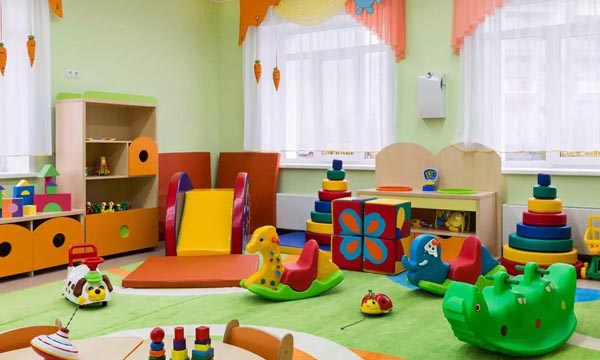NEW DELHI, Jan 30 : The Centre has introduced a set of national minimum standards and protocols aimed at regulating the operation and management of creches, with a focus on children aged six months and above.
According to the guidelines released by the Union Women and Child Development Ministry, creches can be established in a diverse range of spaces, including offices, residential apartments, schools, hospitals, cooperative offices or any other suitable location.
“The goal is to ensure accessibility for parents and guardians, either near their residences or workplaces, to facilitate quick responses in case of emergencies,” according to a senior ministry official who was speaking at an event.
The guidelines stress on the importance of prioritising the safety and convenience of children in creches.
This includes preferences for ground-floor locations for ease of access. If located on other floors, the creches must strictly adhere to the necessary safety measures.
The timing of creches is expected to be demand-based, with mutual agreement between the administrators and the parents or guardians.
“The provision of care services at home on a regular, daily or hourly basis is also encouraged, offering flexibility to accommodate diverse parental needs,” according to the guidelines.
Additionally, the guidelines recommend the inclusion of child-friendly spaces designed to cater specifically to the needs and safety of children.
Hygiene and safety measures play a pivotal role in the standards. The guidelines emphasise maintaining proper hygiene inside and outside creches.
“Child-friendly toilets with running water facilities, urinals and proper handwashing amenities, considering the needs of specially-abled children, are imperative,” the document states.
In terms of facilities, creches are mandated to have a safe drinking water facility, preferably with a purifier.
The guidelines also suggest mutual agreements between the administrators and the parents or guardians regarding the food provided to children.
“Play materials and toys, including essential Early Childhood Care and Education study materials, sports equipment and blocks should be provided to stimulate age-appropriate learning and cognitive development,” according to the guidelines.
To ensure security and supervision, the guidelines make it mandatory for creches to install CCTV cameras.
The parents or guardians are encouraged to have access to these cameras, allowing them to monitor the creches remotely from their workplace.
The guidelines extend beyond the physical setup of creches and include recommendations for the establishment of creche administrative committees.
Regarding staffing, the guidelines prescribe a minimum qualification for creche supervisors and helpers. The emphasis is on hiring women staff with relevant experience or qualifications in childcare or nursing.
Additionally, a thorough screening process — including police verification, and character and medical certificates — is mandatory for all staff members.
“The goal is to create an inclusive and secure environment for children and adherence to all rules and acts related to child protection is imperative,” according to the guidelines.
“This comprehensive framework aims to set the standard for creches nationwide, ensuring the wellbeing and development of our youngest citizens,” it said. (PTI)
Trending Now
E-Paper


